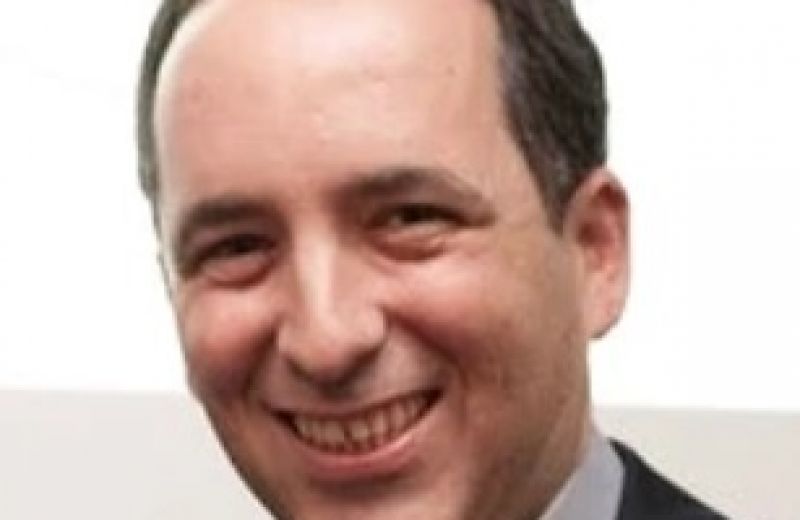 Op-eds
/ Israel and the East Mediterranean
Op-eds
/ Israel and the East Mediterranean
At an important week in Israel-Turkey relations, featuring the first visit to Ankara by an Israeli president in 15 years, the two countries are trying to play a similar and surprising role in the international arena. Turkey and Israel, two states more likely to be mentioned in the context of conflicts they are involved in, are now rolling up their sleeves in a bid to mediate between Russia and Ukraine.
As Prime Minister Naftali Bennett was meeting with Russian President Vladimir Putin in Moscow to offer his mediation services, Turkish President Recep Tayyip Erdogan was preparing for his own conversation with the Russian president urging him to end the war immediately, allow for a ceasefire and negotiations, and enable civilian evacuations. The Turkish president also offered to host a meeting between the leaders of Ukraine and Russia. Meanwhile, Turkish Foreign Minister Mevlut Cavusoglu orchestrated a meeting between the Russian and Ukrainian foreign ministers on the sidelines of the Antalya Diplomacy Forum. Erdogan had offered to act as a mediator already in early February during his visit to Ukraine amid threats of a Russian invasion.
The Turkish mediation efforts are in line with policies Erdogan adopted at the end of his first decade in power, with Ahmet Davutoglu serving as his foreign minister. Turkey was branded as a state that aspires to play regional and global mediator roles, as this being a cornerstone of its new foreign policy. Although Turkish mediation did not yield many tangible results at the time, it remained in the toolbox of Turkish diplomacy, and currently serves to preserve Turkey’s important relations with Russia and Ukraine alike. Although Turkey is increasingly leaning towards Ukraine’s side and shows signs of distancing itself from Russia since the invasion, as expressed in public statements and in restricting warship passage through the Bosporus and Dardanelles straits, Erdogan has repeatedly stated that Ankara seeks to maintain its relations with Moscow.
These ties are far from being exemplary for Turkey. Russia’s decision to intervene in the Syrian war in 2015 prompted concerns in Ankara and led to a crisis in relations following Turkey’s downing of a Russian military jet. The two countries differ on key regional issues, chief among them Syria and Libya. Turkey fears these differences could result in Russian moves, for example, military activity in Syria’s Idlib region that would send waves of refugees to its borders.
Despite their disagreements, Turkey and Russia maintain important cooperation. Turkey imports a significant portion of its natural gas and wheat from Russia. Turkey has also been talking to Russia about defense procurement (S-400 systems), despite its membership in NATO and US opposition. Turkey also relies heavily on Russian tourism, which constitutes a significant portion of its incoming tourism flows. Reflecting this reliance, tourism was one of the issues which Russia’s ambassador to Cyprus raised with his hosts in response to their opposition to the Russian invasion. “Summer is coming up, you’ve closed your airspace – you shot yourselves in the foot,” he said. “Where will Cyprus get its Russian tourists from? They won’t come, they will go to Turkey, is that what you want? For them to go spend their money over there [Turkey]?” Over 4.5 million Russian tourists visited Turkey in 2021, an asset which Ankara would not wish to relinquish.
Nonetheless, Turkey also values its relations with Ukraine and was quick to recognize its independence in the 1990s. Ukraine is also a significant source of tourism for Turkey (some 2 million in 2021), and their varied business dealings include Turkey’s sale of the Bayraktar drones that feature in Ukraine’s attacks on the Russian invaders these days. Turkey has been expressing its support for Ukraine’s territorial integrity since the incursion began, supplying it with humanitarian aid and urging NATO and the West to upgrade their support for Kyiv. Turkey’s foreign and defense ministers held talks with their Ukrainian counterparts, and Turkey eventually acceded to Ukraine’s request regarding Russian naval passage through the straits. However, Turkey opposes sanctions on Russia, arguing that these would not help and simply delay resolution of the core problems between the sides.
Erdogan is gearing up for elections in 2023, facing complex political challenges and an economy in crisis. A crisis with Russia could further challenge Turkey’s economy and Erdogan’s prospects. A Russian tourism boycott of Turkey following the 2015 downing of the Russian jet demonstrated the repercussions of such a move and Erdogan is keen to avoid a repeat of that scenario. However, he also wants to demonstrate equity in NATO and the West, as well as foreign policy achievements following some tough years in that arena.
In the Russia-Ukraine context, Turkey’s mediation efforts are consistent with Erdogan’s other regional diplomatic moves, mainly promoting dialogue and seeking positive agendas. This is a different approach than the one we have become accustomed to seeing from the Turkish president, who in recent years tended to highlight divisive issues and raise tensions with neighboring countries. The new approach was recently reflected in Erdogan’s successful visit to the United Arab Emirates, Turkey’s dialogue with Saudi Arabia and Egypt, and the warming of relations with Israel. This is a positive construct, which will enable Israel to derive more diverse benefits from restoring relations with Turkey than it could in the past, both at the bilateral and regional levels. And who knows, these developments might even encourage Israel and Turkey to promote their own respective peace processes, while trying to mediate the conflicts of others.
The op-ed was published in JPost in March 2022


